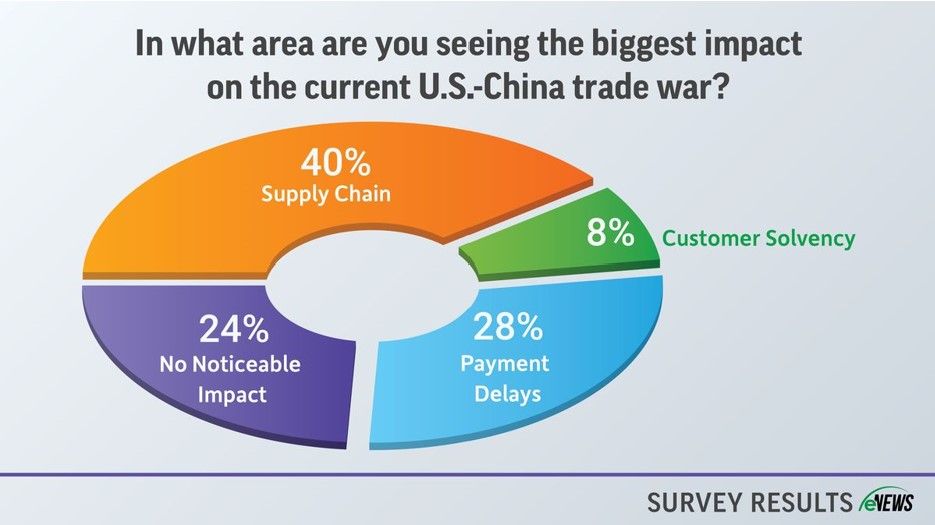eNews, Government
New Law Requires Business Ownership Transparency
The Anti-Money Laundering Act of 2020 (AMLA) established the Corporate Transparency Act (CTA), which requires FinCEN to establish and maintain a national registry of beneficial owners of entities that are considered to be reporting companies. Information collected pursuant to the CTA will be stored in a private database, according to the American Bar Association (ABA). Enacted in 2021 but taking effect on January 1 of this year, the CTA intends to combat illicit activity including tax fraud, money laundering and financing for terrorism by capturing more ownership information for specific U.S. businesses operating in or accessing the country’s market.

The Anti-Money Laundering Act of 2020 (AMLA) established the Corporate Transparency Act (CTA), which requires FinCEN to establish and maintain a national registry of beneficial owners of entities that are considered to be reporting companies. Information collected pursuant to the CTA will be stored in a private database, according to the American Bar Association (ABA). Enacted in 2021 but taking effect on January 1 of this year, the CTA intends to combat illicit activity including tax fraud, money laundering and financing for terrorism by capturing more ownership information for specific U.S. businesses operating in or accessing the country’s market.
Under the new legislation, businesses that meet certain criteria must submit a Beneficial Ownership Information (BOI) Report to the U.S. Department of Treasury’s Financial Crimes Enforcement Network (FinCEN), providing details identifying individuals who are associated with the reporting company. This must be administered by every new corporation, limited liability company (LLC), limited partnership and any entity whose existence is created by a filing with a Secretary of State in any state.
According to the CTA, an individual qualifies as a beneficial owner if they directly or indirectly have a significant ownership stake in a company. The individual either has a major influence on the reporting company’s decisions or operations, owns at least 25% of the company’s shares or has a similar level of control over the company’s equity.
This filing requires the business name, current address, state of formation and tax identification number for the entity. The filing also requires the name, birth date, address and a copy of a government-issued photo ID such as a driver’s license or passport of every direct and indirect owner.
Why It Matters: The CTA, which went into effect on Jan. 1, impacts millions of small businesses across the U.S. The CTA prevents individuals with malicious intent “from hiding or benefitting from the ownership of their U.S. entities to facilitate illegal operations which, according to Congress, is a widely used tactic that affects national security and economic integrity,” reads an article by CO.
Each of the 32 million or more entities will almost certainly involve a filing by more than one person, according to Kiplinger. “The inclusion of this information for indirect owners creates both complexity and a very broad range of who qualifies as an indirect owner, requiring the filing of individual, otherwise personal information,” reads the article. “Penalties for failure to comply are high—$500 a day up to $10,000 and up to two years in jail (per occurrence).”
The CTA contains a safe harbor from such civil and criminal liability for the submission of inaccurate information if the person who submitted the report voluntarily and promptly corrects the report within 90 days.
Exceptions to CTA Reporting per Kiplinger
- Regulated companies such as banks and credit unions.
- Large companies are defined as having more than 20 employees and $5 million in annual revenue.
- Companies that are inactive or dormant—but inactive is defined as not holding any kind or type of assets and has not sent or received any funds greater than $1,000 directly or indirectly, was in existence on Jan. 1, 2020, and is not owned by a foreign person. This is a much more limited exception than the title “inactive” would imply.
Legal Concerns
According to the ABA, it is unclear whether the CTA reporting obligation applies to business lawyers responsible for the formation of business entities for clients. The act raises a number of issues for business lawyers who cause the formation of business entities for clients. “A primary concern is the need to balance requirements under the CTA with professional ethical responsibilities to their clients,” reads an ABA article. “The CTA defines the term applicant as any individual who files an application to form an entity or registers a foreign entity to do business in the United States. Lawyers frequently undertake such acts, but it is unclear as to whether the reporting obligation will be imposed on the ‘applicant’ or the entity itself.”





